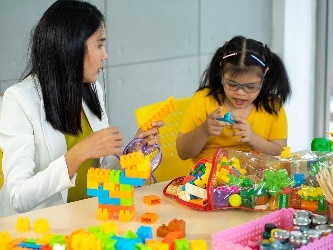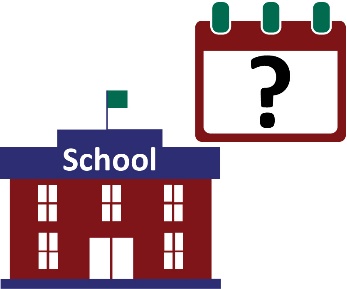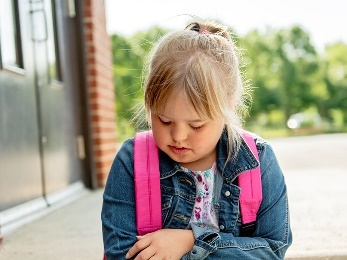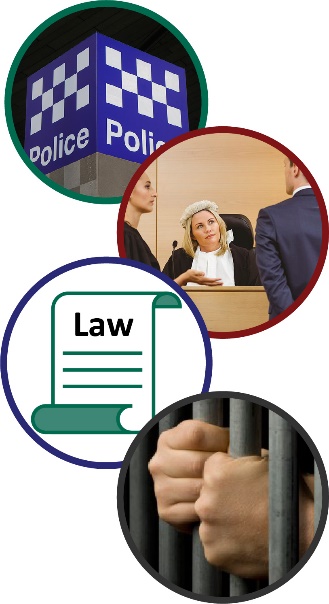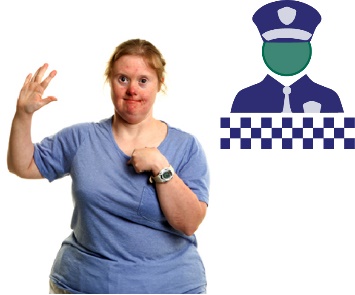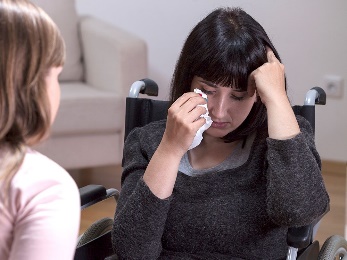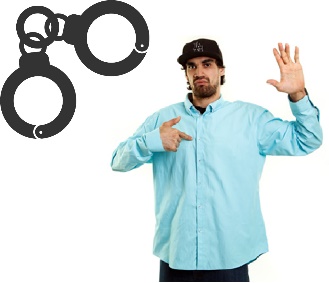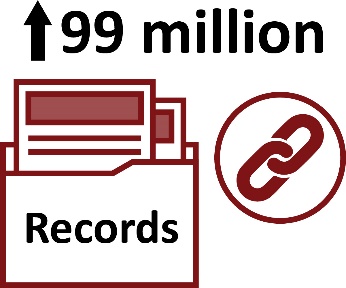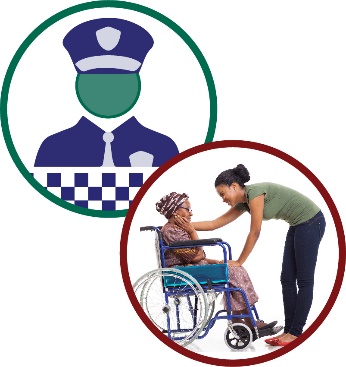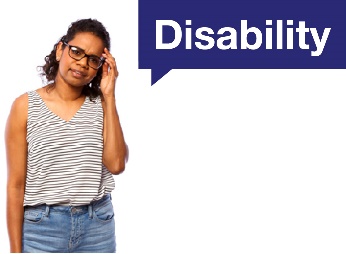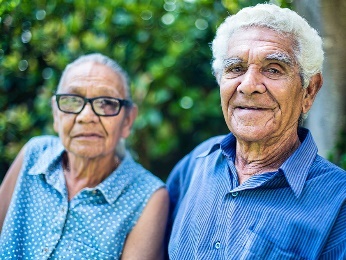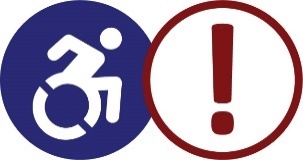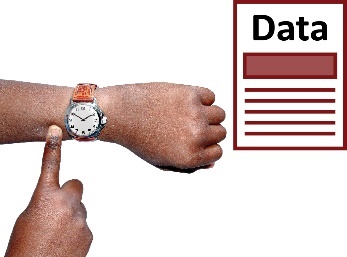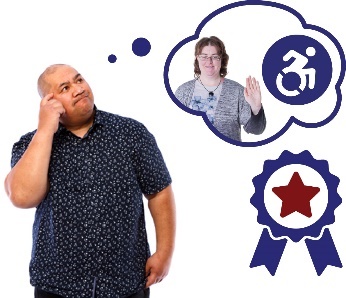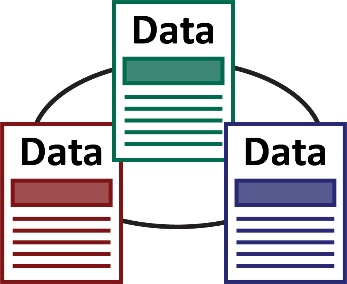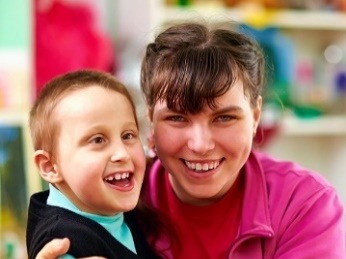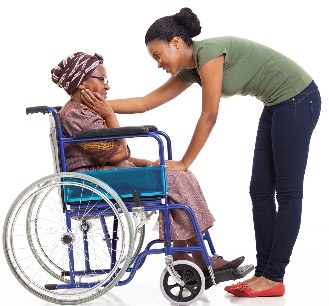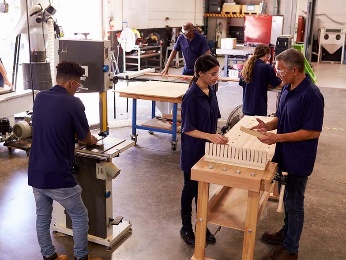What were our test cases about?
Housing services data
| This test case was about data about people with disability who use housing services. |
| Housing services support people with disability where they live. |
This test case: | |
|
|
|
|
| There was lots of linked data about people with disability who use housing services. |
What other data do we need for the housing services data test case?
| Lots of people with disability use housing. |
| We know nearly 1 in 10 people with disability live in public housing. |
| When someone lives in public housing, they live in a home for people who need support to pay the rent. |
| Rent is the money you pay to live in a home someone else owns. |
| We need to do more research to work out why some people with disability can’t find and use housing services. |
| We need more data about other housing services. |
This will help us understand: | |
|
|
|
|
|
|
Mental health services for people with disability
| This case study was about mental health services. |
| Mental health services support people with their mental health problems. |
| A mental health service can be an:
|
| We linked Victorian and national data about people with mental health problems. |
| This test case will help us understand how many people with disability use mental health services. |
What other data do we need for the test case on mental health services for people with disability?
| We must support disability and health services to:
|
This will help us understand: | |
|
|
|
|
|
|
Early childhood supports
| This test case was about support for children with disability during their early childhood – before they start school. |
| This includes children with developmental delay. |
| When a child has a developmental delay, it means they don’t grow or develop how other children their age do. |
| When we say children with disability, we also mean children with developmental delay. |
| It is good for children with disability to take part in early childhood learning. |
| Children with disability can get good results from early childhood learning. |
| In this test case we looked at all children in New South Wales (NSW). |
What other data do we need for the early childhood supports test case?
We can learn more about children with disability by: | |
|
|
|
|
| We can also look at data about what family life is like for children with disability. |
| We can learn more about what life is like for children with disability in their:
|
| We want to know how many days children with disability:
|
| We want to know what stops children with disability getting the services and supports they need. |
People with disability who are involved in the justice system
| The justice system includes:
|
| This test case was about people with disability who were involved with the justice system. |
| People with disability might be involved in the justice system if they’re a victim. |
| A victim is someone who experiences a crime. A crime is when someone:
|
| People with disability might be involved in the justice system if they’re an offender. |
| An offender is someone who:
|
| We linked more than 99 million records. |
| In our test case, we looked at 2.8 million people with disability who came into contact with:
|
First Nations peoples
| First Nations languages don’t have a word for disability. |
| Many First Nations peoples don’t say if they:
|
| But there are lots of First Nations peoples with disability. |
| And there are lots of First Nations peoples with disability involved in the justice system. |
| But we know First Nations peoples might not:
|
| We must get data about First Nations peoples with disability from other places. |
| It will take time to get that data. |
What other data do we need for the test case on people with disability who are involved in the justice system?
| We need better ways to work out if people involved in the justice system are people with disability. |
We must look at: | |
|
|
|
|
When people with disability are involved in the justice system, we need data about their: | |
|
|
|
|
|
|
| We need better ways to support people with disability when they are involved in the justice system. |
Leaving school and starting work
This test case was about young people with disability who: | |
|
|
|
|
|
|
|
|
| There was lots of linked data in this test case. |
| We looked at different data about young people with disability. |
What other data do we need for the test case on leaving school and starting work?
| All governments have an Education Department. |
| Education Departments looks after:
|
| Education Departments keep data about: students with disability their school experiences learning outcomes. |
| But they don’t collect data about schools the government doesn’t run. |
This includes: | |
| independent schools |
| Catholic schools. |
| We need ways to work out if students with disability have:
|
| The data about some students with more than one disability might talk about one of their disabilities. This disability might change over time. |
| But another disability might make a bigger difference to their outcomes at:
|
What were our test cases about?
Housing services data
| This test case was about data about people with disability who use housing services. |
| Housing services support people with disability where they live. |
This test case: | |
|
|
|
|
| There was lots of linked data about people with disability who use housing services. |
What other data do we need for the housing services data test case?
| Lots of people with disability use housing. |
| We know nearly 1 in 10 people with disability live in public housing. |
| When someone lives in public housing, they live in a home for people who need support to pay the rent. |
| Rent is the money you pay to live in a home someone else owns. |
| We need to do more research to work out why some people with disability can’t find and use housing services. |
| We need more data about other housing services. |
This will help us understand: | |
|
|
|
|
|
|
Mental health services for people with disability
| This case study was about mental health services. |
| Mental health services support people with their mental health problems. |
| A mental health service can be an:
|
| We linked Victorian and national data about people with mental health problems. |
| This test case will help us understand how many people with disability use mental health services. |
What other data do we need for the test case on mental health services for people with disability?
| We must support disability and health services to:
|
This will help us understand: | |
|
|
|
|
|
|
Early childhood supports
| This test case was about support for children with disability during their early childhood – before they start school. |
| This includes children with developmental delay. |
| When a child has a developmental delay, it means they don’t grow or develop how other children their age do. |
| When we say children with disability, we also mean children with developmental delay. |
| It is good for children with disability to take part in early childhood learning. |
| Children with disability can get good results from early childhood learning. |
| In this test case we looked at all children in New South Wales (NSW). |
What other data do we need for the early childhood supports test case?
We can learn more about children with disability by: | |
|
|
|
|
| We can also look at data about what family life is like for children with disability. |
| We can learn more about what life is like for children with disability in their:
|
| We want to know how many days children with disability:
|
| We want to know what stops children with disability getting the services and supports they need. |
People with disability who are involved in the justice system
| The justice system includes:
|
| This test case was about people with disability who were involved with the justice system. |
| People with disability might be involved in the justice system if they’re a victim. |
| A victim is someone who experiences a crime. A crime is when someone:
|
| People with disability might be involved in the justice system if they’re an offender. |
| An offender is someone who:
|
| We linked more than 99 million records. |
| In our test case, we looked at 2.8 million people with disability who came into contact with:
|
First Nations peoples
| First Nations languages don’t have a word for disability. |
| Many First Nations peoples don’t say if they:
|
| But there are lots of First Nations peoples with disability. |
| And there are lots of First Nations peoples with disability involved in the justice system. |
| But we know First Nations peoples might not:
|
| We must get data about First Nations peoples with disability from other places. |
| It will take time to get that data. |
What other data do we need for the test case on people with disability who are involved in the justice system?
| We need better ways to work out if people involved in the justice system are people with disability. |
We must look at: | |
|
|
|
|
When people with disability are involved in the justice system, we need data about their: | |
|
|
|
|
|
|
| We need better ways to support people with disability when they are involved in the justice system. |
Leaving school and starting work
This test case was about young people with disability who: | |
|
|
|
|
|
|
|
|
| There was lots of linked data in this test case. |
| We looked at different data about young people with disability. |
What other data do we need for the test case on leaving school and starting work?
| All governments have an Education Department. |
| Education Departments looks after:
|
| Education Departments keep data about: students with disability their school experiences learning outcomes. |
| But they don’t collect data about schools the government doesn’t run. |
This includes: | |
| independent schools |
| Catholic schools. |
| We need ways to work out if students with disability have:
|
| The data about some students with more than one disability might talk about one of their disabilities. This disability might change over time. |
| But another disability might make a bigger difference to their outcomes at:
|



























